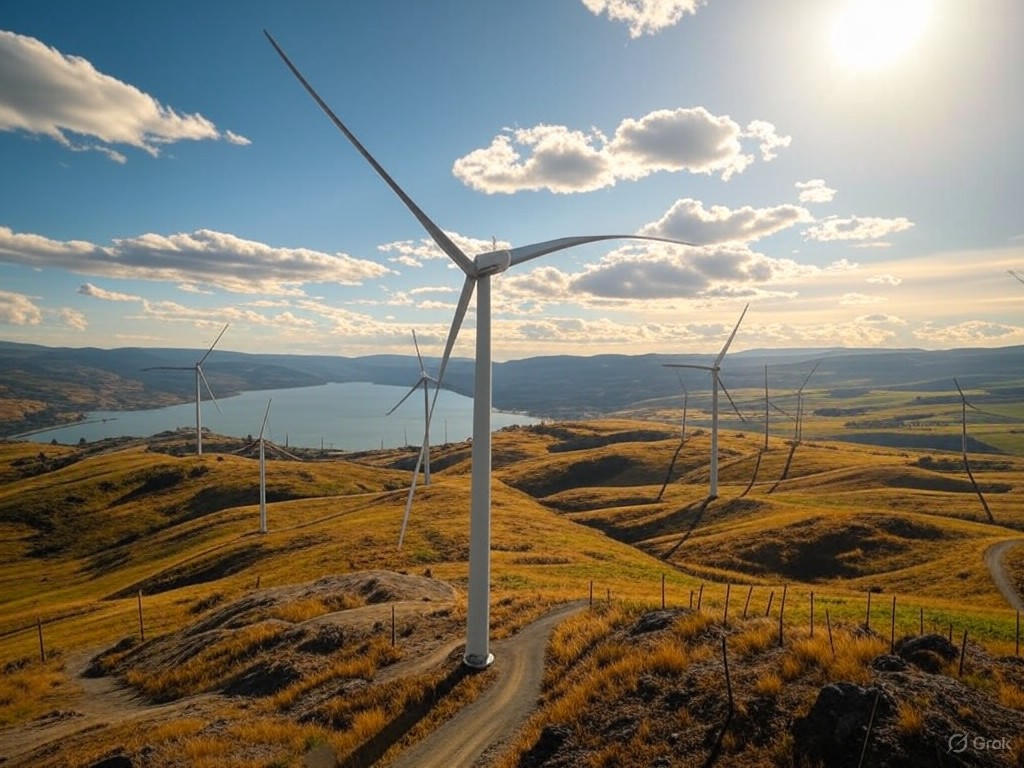BC’s Clean Energy Future: A Global Trade Advantage?
In an era where the winds of global commerce blow with the capriciousness of a Regency ball—full of promise one moment and upheaval the next—British Columbia stands poised to pirouette gracefully toward economic prosperity. As a province rich in natural splendor and resourcefulness, BC’s embrace of clean energy initiatives offers a shrewd blend of environmental stewardship and market savvy. Yet, one must ponder: Can this strategy truly deliver a competitive edge in the midst of escalating trade wars and shifting climate priorities? Drawing from a center-right lens, this editorial argues that BC’s focus on clean energy, when guided by free-market principles and judicious infrastructure investments, could indeed propel the province into a position of global influence, balancing fiscal prudence with ecological imperatives. Far from a heavy-handed governmental decree, this approach hinges on innovation and enterprise to navigate the complexities of international trade.
The Allure of Clean Energy in a Fractured Trade Landscape
British Columbia’s clean energy strategy, a tapestry woven from hydroelectric power, burgeoning wind and solar projects, and emerging technologies like geothermal, represents a calculated move in the global chess game of commerce. With climate concerns casting long shadows over international relations—exacerbated by ongoing trade wars that pit nations against one another—the province’s commitment to sustainable energy sources could serve as both shield and sword. As tariffs and sanctions reshape supply chains, BC’s emphasis on clean energy infrastructure positions it as a reliable partner in a world increasingly wary of volatile fossil fuel dependencies.
Consider the province’s hydroelectric backbone, which already accounts for over 90% of its electricity generation, as reported by the Canadian Energy Regulator. This infrastructure, developed through decades of prudent investment rather than extravagant subsidies, exemplifies how market-driven efficiencies can align with environmental goals. Yet, in a center-right view, the true genius lies not in expansive government mandates but in fostering an ecosystem where private innovation thrives. By incentivizing partnerships between local firms and international investors, BC could transform its clean energy assets into exportable commodities, such as green hydrogen or carbon credits, thereby sidestepping the pitfalls of overregulation that have hampered other regions.

The majestic flow of the Peace River through a BC Hydro dam at dawn, symbolizing the province's enduring commitment to harnessing nature's power for sustainable economic growth.
However, this path is not without its perils. The ongoing trade war between major economies, including the U.S. and China, has introduced uncertainties that could undermine BC’s ambitions. For instance, if protectionist policies escalate, as detailed in a recent Wall Street Journal analysis, provinces like BC might face barriers to exporting clean energy technologies. Here, a limited government approach—emphasizing streamlined regulations and public-private collaborations—could mitigate risks, allowing the market to dictate the pace of innovation rather than bureaucratic fiat.
Analyzing the Balance: Economic Gains Amid Environmental Shifts
At its core, BC’s clean energy strategy seeks to harmonize economic vitality with environmental responsibility, a delicate equilibrium that echoes traditional values of stewardship and self-reliance. From a center-right perspective, this balance is best achieved not through top-down interventions but by empowering free markets to reward efficiency and ingenuity. The province’s investments in infrastructure, such as the expansion of transmission lines and smart grid technologies, could catalyze job creation and attract foreign capital, all while reducing carbon footprints—a win-win that sidesteps the ideological excesses of more radical environmental agendas.
Evidence of this potential abounds. According to data from the International Energy Agency, BC’s clean energy sector is projected to grow by 15% annually through 2030, driven largely by private sector demand for low-emission alternatives. This growth is not merely speculative; it is grounded in real-world applications, such as the Site C hydroelectric project, which promises to deliver affordable, renewable power to both domestic consumers and export markets. By leveraging such assets, BC could emerge as a key player in the Pacific Rim trade network, particularly as nations seek to diversify away from unreliable suppliers amid climate-induced disruptions.
Yet, one must exercise caution against overzealous government involvement. A report from the Fraser Institute, a think tank advocating for market freedoms, warns that excessive subsidies could distort competition and lead to inefficiencies. Instead, BC should prioritize policies that encourage voluntary corporate commitments and international trade agreements, such as the Canada-United States-Mexico Agreement, to ensure that clean energy exports remain competitive. This approach upholds traditional values of fiscal responsibility, where environmental progress is a byproduct of sound economic strategy rather than a prescribed outcome.
In this shifting market, infrastructure emerges as the linchpin. Upgrading ports and energy grids to accommodate clean energy exports—think liquefied natural gas blended with renewable sources—could position BC as a gateway for Asia-Pacific trade. However, as IEEE Spectrum highlights in its coverage of renewable tech advancements, the key is to integrate these developments with existing systems, avoiding the temptation for wholesale overhauls that burden taxpayers.
Evidence from the Ground: Successes and Cautionary Tales
To substantiate BC’s potential trade edge, consider the empirical evidence. In 2022, the province exported over $2 billion in clean energy-related goods, a figure poised to double as global demand surges, per Statistics Canada data. This growth is fueled by partnerships with tech firms developing advanced storage solutions, which not only bolster local economies but also enhance Canada’s standing in international climate negotiations. For instance, BC’s collaboration with U.S. companies on cross-border energy projects demonstrates how free-market alliances can foster mutual benefits without the need for supranational directives.

Wind turbines dotting the rolling hills of BC's Okanagan Valley, illustrating the seamless integration of renewable energy into the province's diverse landscape and economy.
Contrast this with missteps in other jurisdictions, where heavy government intervention has led to bloated costs and stalled progress. A World Bank report on global climate strategies notes that regions overly reliant on state-led initiatives often face delays due to regulatory red tape. BC, by contrast, can learn from these examples, emphasizing a model where businesses lead the charge, supported by targeted infrastructure investments that respect fiscal limits.
A Prudent Path Forward: Embracing Market Wisdom
In conclusion, British Columbia’s clean energy strategy holds the promise of a global trade edge, provided it adheres to the principles of free markets and limited government interference. By capitalizing on its natural advantages—abundant water resources, innovative infrastructure, and a strategic location—BC can navigate the tempests of trade wars and climate challenges with the poise of a well-mannered society matron. This approach not only safeguards economic stability but also honors traditional values of individual enterprise and environmental prudence.
Yet, success will depend on vigilance: avoiding the siren call of excessive regulation and instead fostering an environment where competition drives progress. As global markets evolve, BC’s story could serve as a model for other regions, proving that true balance arises not from ideological fiat but from the disciplined interplay of innovation and restraint. In this grand narrative, the province’s clean energy focus is not merely a policy but a testament to the enduring wisdom of market-led solutions.

